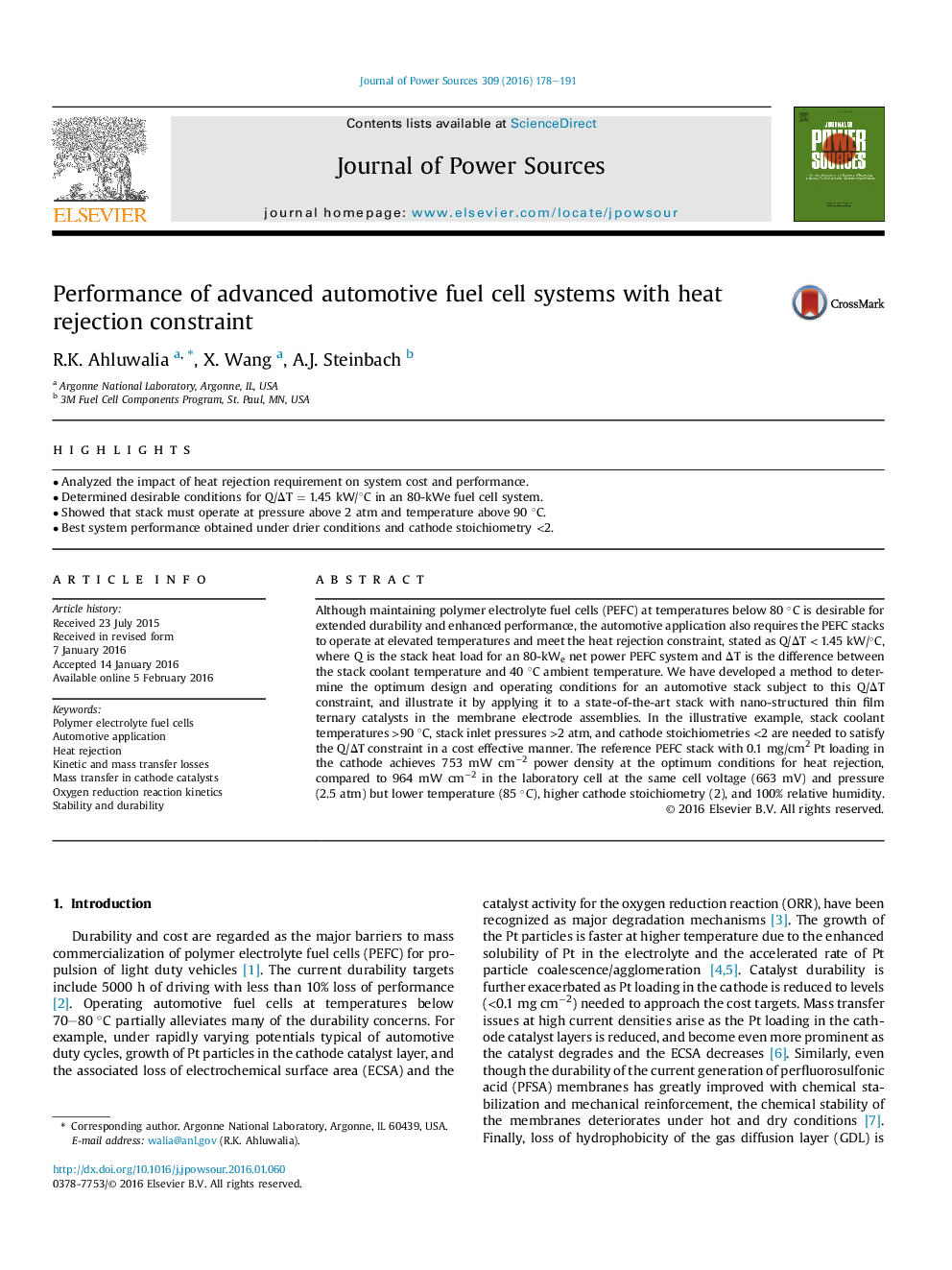| کد مقاله | کد نشریه | سال انتشار | مقاله انگلیسی | نسخه تمام متن |
|---|---|---|---|---|
| 7728627 | 1497923 | 2016 | 14 صفحه PDF | دانلود رایگان |
عنوان انگلیسی مقاله ISI
Performance of advanced automotive fuel cell systems with heat rejection constraint
ترجمه فارسی عنوان
عملکرد سیستم های سلول سوختی پیشرفته با محدودیت رد گرما
دانلود مقاله + سفارش ترجمه
دانلود مقاله ISI انگلیسی
رایگان برای ایرانیان
کلمات کلیدی
سلول های سوخت الکترولیت پلیمر، نرم افزار خودرو، رد گرما، تلفات انتقال جنبشی و جمعی، انتقال جرم در کاتالیست های کاتدی، سینتیک واکنش کاهش اکسیژن، پایداری و دوام،
موضوعات مرتبط
مهندسی و علوم پایه
شیمی
الکتروشیمی
چکیده انگلیسی
Although maintaining polymer electrolyte fuel cells (PEFC) at temperatures below 80 °C is desirable for extended durability and enhanced performance, the automotive application also requires the PEFC stacks to operate at elevated temperatures and meet the heat rejection constraint, stated as Q/ÎT < 1.45 kW/°C, where Q is the stack heat load for an 80-kWe net power PEFC system and ÎT is the difference between the stack coolant temperature and 40 °C ambient temperature. We have developed a method to determine the optimum design and operating conditions for an automotive stack subject to this Q/ÎT constraint, and illustrate it by applying it to a state-of-the-art stack with nano-structured thin film ternary catalysts in the membrane electrode assemblies. In the illustrative example, stack coolant temperatures >90 °C, stack inlet pressures >2 atm, and cathode stoichiometries <2 are needed to satisfy the Q/ÎT constraint in a cost effective manner. The reference PEFC stack with 0.1 mg/cm2 Pt loading in the cathode achieves 753 mW cmâ2 power density at the optimum conditions for heat rejection, compared to 964 mW cmâ2 in the laboratory cell at the same cell voltage (663 mV) and pressure (2.5 atm) but lower temperature (85 °C), higher cathode stoichiometry (2), and 100% relative humidity.
ناشر
Database: Elsevier - ScienceDirect (ساینس دایرکت)
Journal: Journal of Power Sources - Volume 309, 31 March 2016, Pages 178-191
Journal: Journal of Power Sources - Volume 309, 31 March 2016, Pages 178-191
نویسندگان
R.K. Ahluwalia, X. Wang, A.J. Steinbach,
